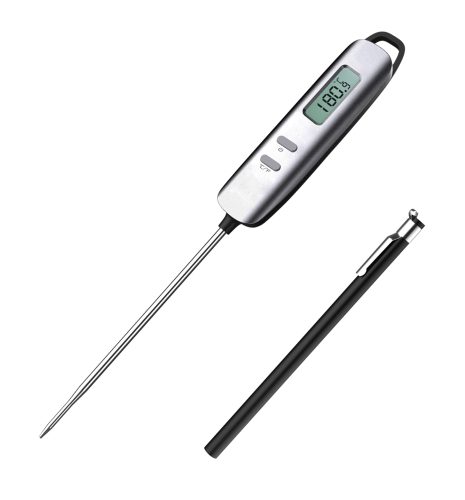- Health and Comfort: Humidity levels significantly impact human comfort. High humidity can make the air feel warmer than it actually is, leading to discomfort, while low humidity can cause dryness in the skin, eyes, and respiratory system. Maintaining optimal indoor humidity levels (around 30-50%) can enhance comfort and reduce health issues.
- Mold and Mildew Prevention: High humidity creates an ideal environment for mold and mildew growth. Monitoring humidity levels using a hygrometer helps prevent the proliferation of these harmful microorganisms, which can cause health problems and damage property.
- Preservation and Storage: In industries such as food, pharmaceuticals, and museums, maintaining specific humidity levels is crucial for preserving items. Incorrect humidity can lead to spoilage, degradation, or irreversible damage to sensitive materials or artifacts.
- HVAC Efficiency: Proper humidity control improves the efficiency of heating, ventilation, and air conditioning (HVAC) systems. Monitoring humidity levels allows for adjustments in HVAC settings to maintain an optimal and comfortable indoor environment while reducing energy consumption.
- Electronics and Machinery: High humidity can damage electronic devices and machinery by causing corrosion or short circuits. Conversely, extremely low humidity can generate static electricity, which poses a risk to sensitive electronics. Monitoring and controlling humidity levels are crucial in environments with electronic equipment.
- Agriculture and Plant Growth: Humidity influences plant growth and health. Different plants require specific humidity levels for optimal growth, and monitoring humidity helps in creating suitable conditions in greenhouses or indoor gardening setups.
- Weather Forecasting: Humidity measurements are essential in weather forecasting. They influence cloud formation, precipitation, and overall weather patterns. Understanding humidity levels helps meteorologists predict and analyze weather conditions.
- Industrial Processes: Various industrial processes require precise humidity control for manufacturing and production. For example, in pharmaceuticals or semiconductor manufacturing, maintaining specific humidity levels is critical for quality control and product consistency.
In summary, humidity matters because it significantly impacts human health, comfort, preservation of materials, efficiency of systems, and various industrial processes. Hygrometer insights provide valuable information for maintaining optimal humidity levels in different settings, contributing to improved comfort, health, and the longevity of materials and systems.




